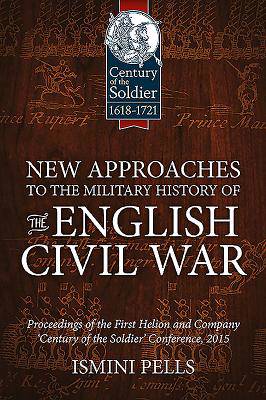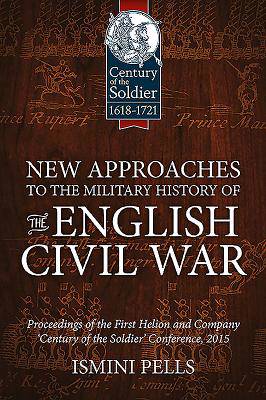
- Afhalen na 1 uur in een winkel met voorraad
- Gratis thuislevering in België vanaf € 30
- Ruim aanbod met 7 miljoen producten
- Afhalen na 1 uur in een winkel met voorraad
- Gratis thuislevering in België vanaf € 30
- Ruim aanbod met 7 miljoen producten
Zoeken
New Approaches to the Military History of the English Civil War
Proceedings of the First Helion and Company 'Century of the Soldier' Conference
Ismini Pells
€ 27,95
+ 55 punten
Omschrijving
In recent years, there has been a renewed interest in the military history of the English Civil War and its associated conflicts in Ireland and Scotland. Historians are increasingly paying attention to the 'actualities of war' (to use Sir Basil Liddell Hart's phrase) during these conflicts, and this has given rise to an accompanying recognition that the better-studied political, social and religious developments of the mid-seventeenth century cannot be divorced from military events. Thus, this volume this is a timely evaluation of a selection of distinct, yet interrelated, military aspects of the Civil War. It commences with two studies that re-evaluate our understanding of two key battles. Peter Gaunt sheds new light on the little-studied (but vitally important) battle of Middlewich on 13 March 1643, which kick-started the Civil War (political, as well as military) career of Sir William Brereton and played a key role in establishing parliamentary dominance in the strategically significant county of Cheshire. Malcolm Wanklyn reappraises the bridge-building exercise over the rivers Teme and Severn at Powick that made Cromwell's tactical plan for fighting the Scots at Worcester on 3 September 1651 possible. The volume then moves on to consider ideology in practice. Many who formed the nucleus of royalist and parliamentarian armies had fought in the English regiments in the service of the Dutch Republic prior to the Civil War. Ismini Pells investigates how these men looked back to their shared experiences on the Continent to establish networks and working relationships both with those in their own armies and the armies of their adversaries. Tim Jenkins provides a reminder that military outcomes were often dependent on civilian actions. Focusing on one of Shrewsbury's leading inhabitants, William Rowley, Jenkins explores the role of religious ideology in the corporate politics and Civil War allegiances of a town that remained under royalist occupation from September 1642 to February 1645. By comparing the instructions in seventeenth century military manuals with the evidence from conflict archaeology, Warwick Louth demonstrates how his groundbreaking methodology can improve our investigation and interpretation of the events that took place on the Civil War battlefields of Britain. Finally, this volume considers the care and welfare provided for the Civil War's participants: nowhere are the actualities of war more apparent than in a conflict's casualties. Stephen Rutherford assesses the battlefield surgery of both sides during the war. He considers the types of wounds that were inflicted and highlights the biomedical significance of the treatments available, many of which have remained unchanged until the twentieth century and even to the present day. Eric Gruber von Arni examines royalist hospital provision during the Civil War, evaluating the attitudes and achievements that accompanied it and contrasting these with the attitudes and achievements of parliamentary medical care. Christopher Scott concludes with a short but lively chapter offering a new explanation for Sir William Waller's defeat at Roundway Down on 13 July 1643, which rests on the destitute condition of the horses in Waller's cavalry
Specificaties
Betrokkenen
- Auteur(s):
- Uitgeverij:
Inhoud
- Aantal bladzijden:
- 212
- Taal:
- Engels
- Reeks:
Eigenschappen
- Productcode (EAN):
- 9781911096443
- Verschijningsdatum:
- 22/12/2016
- Uitvoering:
- Hardcover
- Formaat:
- Genaaid
- Afmetingen:
- 152 mm x 235 mm
- Gewicht:
- 476 g

Alleen bij Standaard Boekhandel
+ 55 punten op je klantenkaart van Standaard Boekhandel
Beoordelingen
We publiceren alleen reviews die voldoen aan de voorwaarden voor reviews. Bekijk onze voorwaarden voor reviews.











